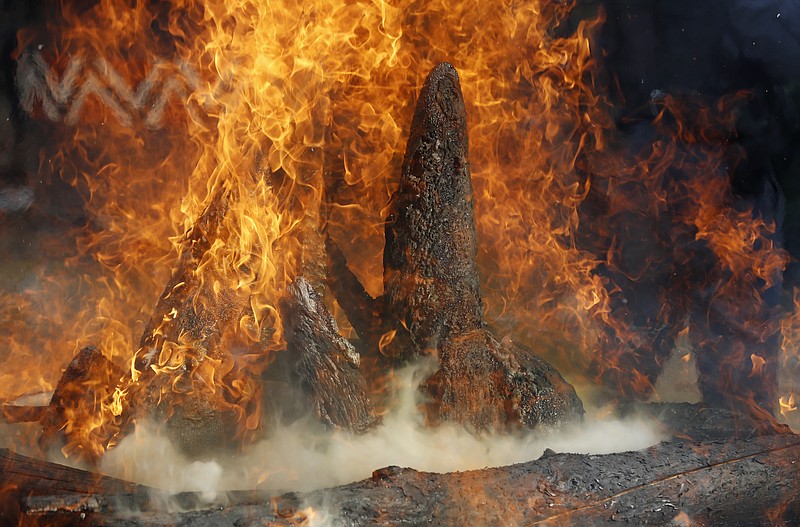DVUR KRALOVE, Czech Republic (AP) - A Czech zoo burned some 74 pounds of rhino horns with an estimated black market value of more than $2 million on Tuesday in a protest against a controversial rhino horn auction in South Africa.
The Dvur Kralove Zoo, 70 miles northeast of Prague, is home to 19 rhinos, the largest group of its kind in Europe. Dozens of visitors applauded Tuesday's ceremonial burning, which took place under the presence of heavily armed customs officials.
Earlier this year, the zoo removed the horns from some of their animals as a precaution to prevent criminals from stealing them for sale after assailants broke into a wildlife park near Paris in March, killing a rhino and stealing its horn.
A kilogram of rhino horn is sold for some $65,000 on the black market. Rhino horns are considered a cure in Asia for everything from cancer, colds and fevers to high blood pressure, hangovers, impotence and other ailments. Poachers have decimated rhino populations in Africa and elsewhere.
Zoo director Premysl Rabas criticized the South African auction, which took place online in August. Another auction was planned for Wednesday.
He called "a huge mistake" a claim by the organizer that a legal trade in rhino horns will undercut poaching that has occurred at record levels in past years.
"We won't stop the killing by legalizing the trade," Rabas said. "It only means it will spur demand."
A South African court ruling opened the way to a domestic trade in rhino horn, though South Africa said it remains party to an international ban in place since 1977.
Richard Leakey, chairman of the Kenya Wildlife Service and a renowned paleoanthropologist and conservationist who was at the Czech zoo Tuesday, said the burning is "one of the best things that a country can do."
"It sends a very, very clear message to African countries and I hope that South Africa is listening. Selling rhino horn makes no sense today," he said.
Countries and zoos around the world have been burning and destroying illegal wildlife products to send a message that such products cannot be traded and poaching animals for their horns must stop.

